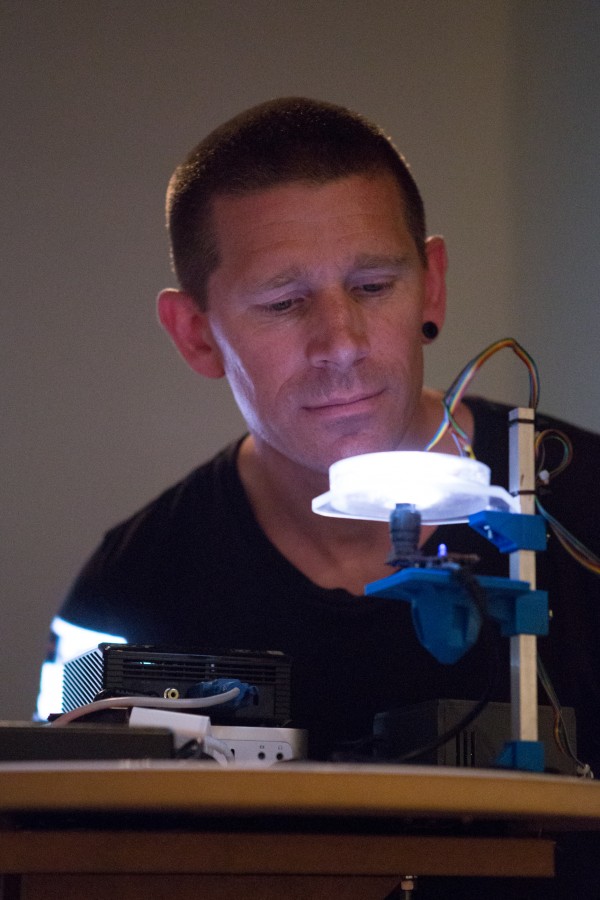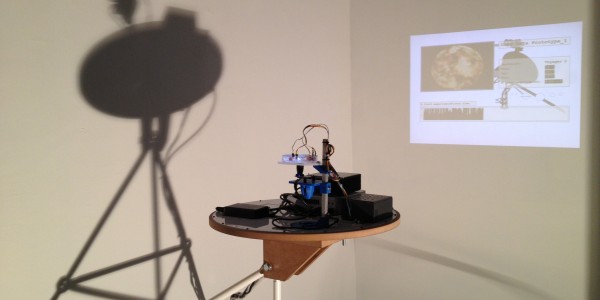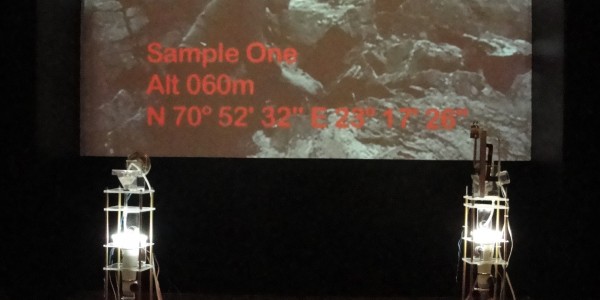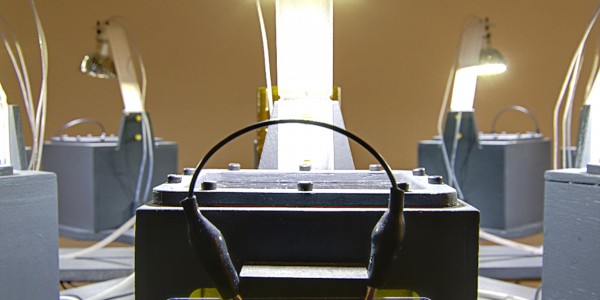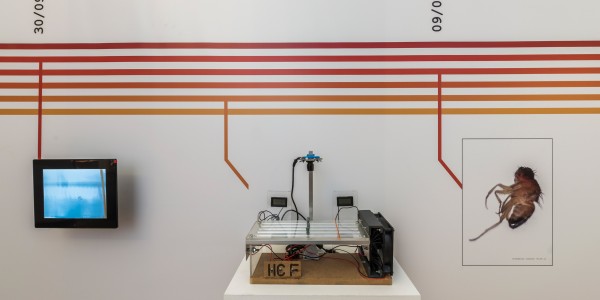Andy Gracie (UK)
Deep Data Prototype 3
Commissioned by Meta.Morf 2016
The Deep Data project is an arc of developmental work, prototypes and research connecting deep space exploration with terrestrial extremophiles, model organisms and the science of astrobiology. The project uses sensor data gathered from deep space probes and planetary explorers such as Pioneer 10 + 11, Voyager 1 + 2, Cassini/Huygens, New Horizons and the various Martian rovers.
Drosophila Titanus
‘Drosophila titanus’ is an ongoing project which through a process of experimentation and artificial selection aims to develop a species of the fruit fly Drosophila melanogaster that would be theoretically capable of living on Saturn’s largest moon Titan. While being a virtually impossible project to ‘successfully’ complete in pure scientific terms, ‘Drosophila titanus’ sites itself as a process within the ongoing discourse surrounding the complex relationships between art and science.
Deep Data Prototype 3
Via a simultaneous study of the data from deep space probes and of microbiological processes we can explore the twin concepts of possibilities for life and the foundations of life. Deep Data has as its central methodology the parallel exploration of these two concepts.
The project also examines the issue of systems boundaries, and proposes that we must keep looking outwards to find those boundaries. To accomplish this it begins to look at the outermost information we have, and that is the information fed back to us by the deep space probes such as Pioneer and Voyager. Deep Data also proposes cultural and critical examination of our quest to find other forms, habitats and strategies for life.
Drosophila Titanus
‘Drosophila titanus ‘ is an ongoing project which through a process of experimentation and artificial selection aims to develop a species of the fruit fly Drosophila melanogaster that would be theoretically capable of living on Saturn’s largest moon Titan. Titan is the largest moon of Saturn and, so far, the most Earth-like place that we know; it has a thick
atmosphere, continents, wind and rain. However, despite these similarities it is a radically different place.
While being a virtually impossible project to ‘successfully’ complete in pure scientific terms, ‘Drosophila titanus’ sites itself as a process within the ongoing discourse surrounding the complex relationships between art and science.
Andy Gracie, London -1967, works across various disciplines including installation, robotics, sound, video and biological practice. This work is situated between the arts and the sciences, creating situations of exchange between natural and artificial systems which allow new emergent behaviours to develop. The underlying focus of his activities has often involved a study of organic intelligence, emergence and the placing of technological agents in situations where they are able to network with natural systems. More recently his work involves reactions to the science of astrobiology; notions of the origins of life coupled with a re-examination of its boundaries. His practice employs scientific theory and practice to question our relationships with environment and the notion of the ‘other’ whilst simultaneously bringing into focus the very relationship between art and science.
His work has been shown internationally and has included several special commissions for new works. He has also presented at numerous conferences and seminars internationally and has written and published a number of articles and papers. His work has also been featured in books by Stephen Wilson, Linda Weintraub, William Myers and Dmitry Bulatov.
His large scale installation ‘Autoinducer_ph-1’ has received honourable mentions from VIDA and Ars Electronica in 2007. The ongoing project ‘Drosophila titanus’ received an honorary mention from Ars Electronica in 2015.
